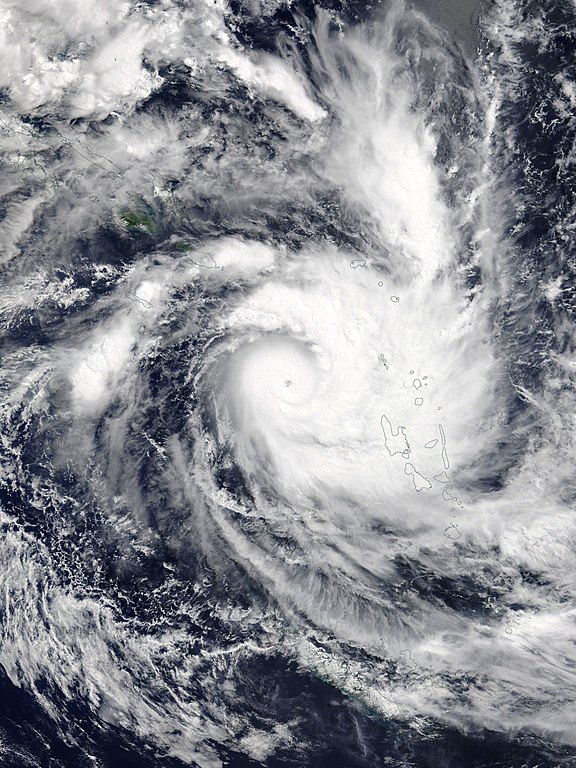While much of the world was focused on battling COVID-19 last week, a powerful tropical cyclone swept through the Solomon Islands, Vanuatu, Fiji, and Tonga, causing significant damage and loss of life.

With gusts over 170mph and rainfall of 250-450mm, Tropical Cyclone Harold was the worse storm to hit Vanuatu since Cyclone Pam in 2015, and, in some areas, damage has been significantly worse. Entire villages are reported to have been destroyed in the northern parts of the island chain.
In addition to the devastation caused by the storm, social distancing measures had to be temporarily lifted in some areas to enable people to gather in emergency shelters, and this may exacerbate the impacts of COVID-19 in the region. Furthermore, the crisis is largely remaining under the radar, given the ongoing pandemic, meaning little funding is being made available to assist the affected islands, despite tremendous need. What international aid there is has been hampered and delayed by the virus.
MapAction is already delivering support to the UN’s Office for the Coordination of Humanitarian Affairs (OCHA) in the Asia Pacific region (ROAP) to help the regional COVID-19 response. We have diverted some of this effort to respond to the emergency caused by Cyclone Harold, creating situation maps for Fiji and Tonga. These are helping humanitarian teams prioritise and coordinate aid. We will continue to provide assistance as needed.
